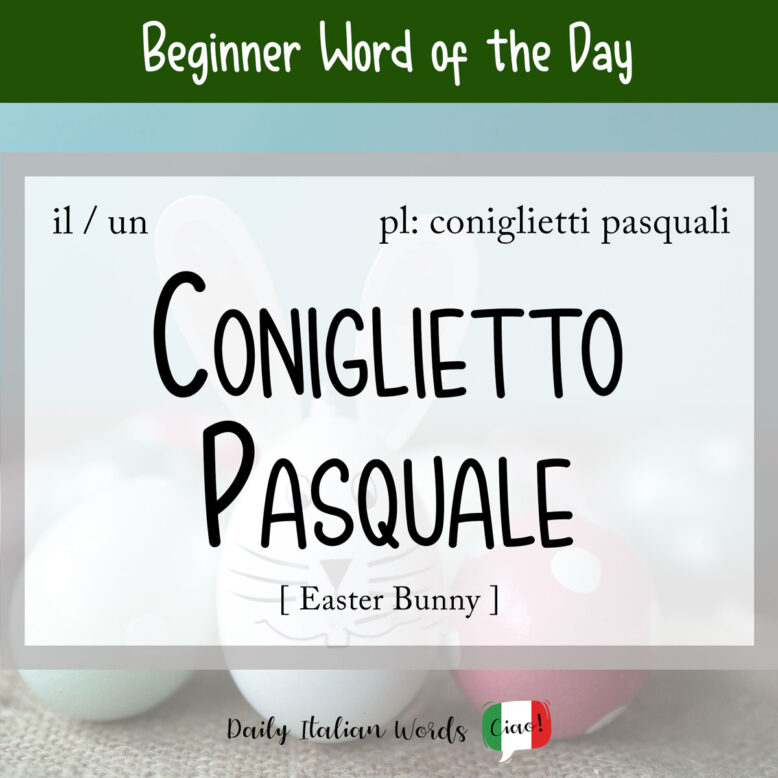Today’s word of the day is part of our Italian Easter Word series. Each day during the week leading up to Easter, we’ll post a word that is related to this special time of year. Enjoy! 🐰
Easter is only a week away, and what better way to celebrate than to share some useful Easter-related words you can use in Italian! Today’s word is coniglietto pasquale (masculine, plural: coniglietti pasquali), which is the Italian for Easter Bunny.
coniglietto pasquale
Easter Bunny

Il coniglietto pasquale ha nascosto delle uova nel giardino.
The Easter Bunny has hidden some eggs in the garden.
The coniglietto pasquale – also known as coniglietto di Pasqua – is a fictional rabbit who, according to legend, lays, decorates, and hides eggs for children at Easter.

Although the custom of the Easter bunny isn’t widely diffused in Italy, many shops have started to offer chocolate bunnies and rabbit-shaped plush toys in recent years due to American media influence. In fact, some of the largest cities in Italy have started organising official Easter Egg Hunts (Caccia alle uova di Pasqua) over the Easter weekend.
Although the actual Italian word for rabbit or bunny is coniglio, the diminutive form coniglietto, which literally means little rabbit, is preferred when talking about the Easter Bunny. This is because it conjures up a cuter, fluffier image than coniglio on its own.
Il coniglietto di Pasqua arriverà presto!
The Easter Bunny will be coming soon!
Did you know that…?
Because rabbits usually give birth to a large litter of babies (called kittens), they are considered a symbol of new life. This is likely how the rabbit came to be associated with Easter and the rebirth of Christ.
Heather Broster is a graduate with honours in linguistics from the University of Western Ontario. She is an aspiring polyglot, proficient in English and Italian, as well as Japanese, Welsh, and French to varying degrees of fluency. Originally from Toronto, Heather has resided in various countries, notably Italy for a period of six years. Her primary focus lies in the fields of language acquisition, education, and bilingual instruction.


